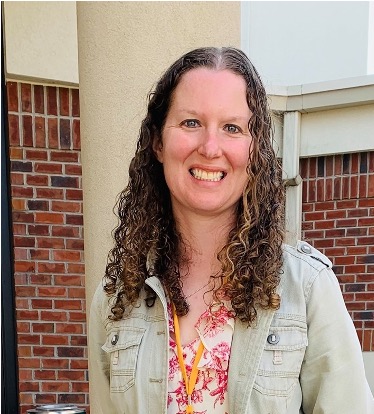“Be yourself; everyone else is already taken.”
He boarded the boat, not for a cruise or a fishing trip but for what he thought would be the next step in his ministry, his walk with God, his life. A recent seminary grad and new pastor, he had a deep desire to change the world, to go to the ends of the earth, to share Jesus with a world in need. At school he was known for starting things, especially a group of students who wanted to talk about what it looked like to be holy and to hold each other accountable for their actions. He dove deep into reading and conversation to examine the faith that was inside of him.
And then, when he was presented with an opportunity to leave home and head to a foreign frontier to minister to its employees and become a missionary to the natives, he jumped at it. But then, just days before the trip, he revealed a deeper purpose in the pages of his journal: “My chief motive is the hope of saving my own soul. I hope to learn the true sense of the Gospel of Christ by preaching it to the heathen.”
It was October 1735, and John Wesley was embarking on a journey not only to share Jesus but to find himself.
Who Needs to be Converted?
If you know the rest of Wesley’s story, you know that his two years in the colony of Georgia turned out to be far from successful. It’s not that success necessarily reflects whether God was in it or not, but Wesley’s venture pointed him back to England. The local English settlers initially attended his worship gatherings more out of curiosity than anything else, hearing him preach about spiritual disciplines, righteousness, and ideas that were foreign to their concept of religion. He tried to start a new Bible study on Sunday afternoons but had no success converting the Native Americans. Later, he got into a romantic drama involving poor decision-making on his part that sent him packing for Europe. “I went to America to convert the Indians,” he wrote, “but, O! who shall convert me?”
""My
Tweet this.
But as much as Wesley’s ministry in Georgia taught him who he was not and what he was not called to do, it also taught him who he was. It showed him that though his calling looked different than everybody else’s and their expectations for him, it was just as valid and much more impactful. It shaped him into the man God would use to lead a movement that would impact many places and people with whom he would never directly minister. It also made it clear that abandoning ship wasn’t an option.
Where God Often Starts the Greatest Work
The place where God starts doing the greatest work often is where you already are, as the person he created you to be.
And sometimes that’s hard. More often than not, we take personality tests like Myers-Briggs and Strengthsfinders and Enneagram and look around the circle, disappointed in ourselves and the test and envious of the things others have and we do not. “I need to be an extrovert if I’m a church planter.” “Why isn’t Communication or Woo in my top 5 Strengths?” “I don’t want to be a #3!” And then after we come back from conferences and meet interesting people doing cool stuff, we start thinking that needs to be us. “We need to start a video game ministry—although people in our church spend most of their time on the ball field.” “I need to hang out at Starbucks—although I don’t like coffee.” It’s not that God can’t call us to do these things or there aren’t many lessons we could learn by trying them. The problem is that we might be missing out on something: how God has both strategically crafted and placed us where we are, as the people we are.
In Scripture and in history, more churches were started, more ministries have grown, and more people have come to faith when people were faithful where they found themselves, using what God had already given them.
Like Wesley, you might not be called to be the on-the-ground missionary to a new frontier. You may be the leader who lays the foundation and gives permission for pioneers in your church. You might set your denomination on a path to do the ministry that God has called them to do. You may not fit into the mold of a traditional pastor like your classmates in seminary—but you may be the entrepreneurial spirit God needs to reach the urban community on the South Side. You may not be called to start a video game ministry—but you may be called to start a fresh expression of church with the families involved in your daughter’s little league team.
Who are you?
Where are you?
Answering those two questions may reveal more about how God needs you to serve him than you think.
Join a Pioneer Learning Community and learn how to start a fresh expression of Church


